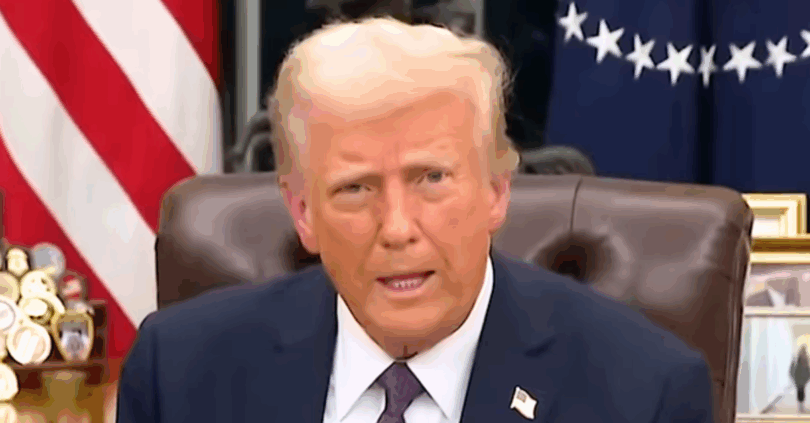Judge Blocks Trump’s Efforts to Require Proof of Citizenship to Register to Vote
A federal judge has halted key portions of President Donald Trump’s executive order on election procedures, ruling that his attempt to require citizenship proof for voter registration exceeds presidential authority and violates the constitutional separation of powers.
In a sweeping 120-page opinion issued Thursday, U.S. District Judge Colleen Kollar-Kotelly blocked the Trump administration from implementing two major provisions of the executive order titled “preserving and protecting the integrity of American elections.”
“Our Constitution entrusts Congress and the States—not the President—with the authority to regulate federal elections,” Kollar-Kotelly wrote in her decision.
“No statutory delegation of authority to the Executive Branch permits the President to short-circuit Congress’s deliberative process by executive order.”
The ruling specifically prevents the administration from requiring proof of citizenship to register to vote and from ordering election officials to verify citizenship status of public assistance recipients before allowing them to register.
The judge also barred the Election Assistance Commission from withholding federal funding from states that refuse to comply with the executive order.
Three separate lawsuits challenged Trump’s election policy after it was issued last month.
Plaintiffs included the Democratic National Committee—with Sen. Charles Schumer (D-NY) and Rep. Hakeem Jeffries (D-NY)—along with the League of United Latin American Citizens and National Association for the Advancement of Colored People.
“These consolidated cases are about the separation of powers,” the judge emphasized in her opinion.
She noted that the Department of Justice “offered almost no defense of the President’s order” during proceedings, a surprising development in a case of constitutional significance.
Legal experts suggest this ruling represents one of the most significant checks on executive power in the electoral sphere in recent years.
The decision underscores the judiciary’s role in maintaining constitutional boundaries between branches of government, particularly when it comes to election administration. However, the ruling allowed two sections of the executive order to remain in effect.
One directs the Department of Homeland Security and State Department to make voting databases accessible to the Department of Government Efficiency for identifying non-citizens registered to vote.
The other instructs the Justice Department to take action against states that do not require mail-in ballots to be received by election day.
These sections were permitted to stand because the plaintiffs lacked legal standing to challenge those specific provisions, according to the judge.
This partial victory for the administration means certain data-sharing initiatives can proceed while the more controversial citizenship requirements remain blocked.
ABC News highlighted that in her ruling, Kollar-Kotelly suggested that if Trump wishes to reform election processes, he should work through the appropriate constitutional channel—Congress.
She noted that lawmakers are “currently debating legislation that would effect many of the changes the President purports to order.”
The decision represents a significant setback to the administration’s unilateral approach to election policy changes, reinforcing constitutional limits on executive power in the electoral process.
It also impacts the practical implementation of voter registration processes across the country, with state election officials now waiting for clarity on federal requirements.
White House press secretary Karoline Leavitt has not yet issued a formal response to the ruling at the time of this writing, though sources within the administration indicate legal teams are reviewing options for appeal.
Constitutional scholars point out that an appeal could potentially reach the Supreme Court given the fundamental questions about executive authority at stake.
For now, states will not be required to implement the citizenship verification measures that were central to the executive order, and cannot lose federal funding for declining to do so.
Also blocked this morning—Trump’s order withholding funding from sanctuary cities defying federal law. This judicial tyranny must end. If there is a constitutional crisis, it is being forced on us by the courts who refused to respect the will of the American people. https://t.co/1bJY4g7mOR
— Megan Basham (@megbasham) April 24, 2025


Leave a Comment